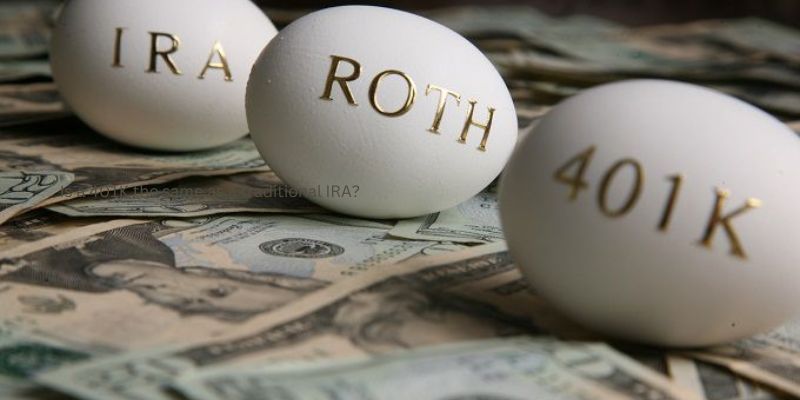Invest Wisely: Top 6 Tactics to Prevent Yourself from Investment Fraud
Triston Martin
Dec 10, 2023
Money fraud investments are fraudulent activities that trick people into giving away their money, often appearing as legitimate opportunities. These scams are particularly dangerous because they frequently present themselves with convincing websites and marketing materials, making them seem credible.
Common Investment Scams

Affinity Fraud
Affinity fraud targets age, ethnicity, and religion groups. Scammers join these groups and pretend to be like them. They want the group's leader and members' trust. By convincing the leader to invest, they hope others will. This money fraud exploits group trust and solidarity.
These scams depend on the fraudster's knowledge of group dynamics. Language, customs, and shared experiences can build credibility. Affinity fraud exploits group trust, making it dangerous. People are more likely to relax and not verify the investment.
Pyramid Schemes
Pyramid schemes are financial frauds that recruit new investors. Profits come from new investors, not legitimate business activities. This model will fail when new investors dry up.
Early participants in a pyramid scheme may receive returns to attract more members. As new investors leave, the money pool shrinks, causing the scheme's collapse. The scammer may disappear with the funds, leaving most participants losers.
Avoid Pump-and-Dump Schemes
For profit, pump-and-dump scammers manipulate stock prices. They buy cheap stocks first. They inflate the stock's perceived value through misinformation and hype, fooling buyers into thinking it's a good investment. Scammers profit by selling their shares as the stock price rises artificially.
A sudden sell-off lowers stock prices, leaving new investors with worthless stocks. This scheme is money fraud, using false information to deceive investors. Research and consult reputable financial advisors before investing in stocks, especially those with sudden value increases. Intelligent choices are your best defense against pump-and-dump schemes.
High Yield Investment Programs
Investors are drawn to HYIPs by their high returns. These low-risk investments promise profits, say scammers. These investments often involve worthless stocks or are nonexistent.
The risk of HYIPs is their unrealistic promises. They exploit the desire for fast, significant returns. Investors should avoid schemes that promise high returns with low risk. Real investments always involve risk, and high returns usually mean higher risk.
Ponzi Schemes
Ponzi schemes involve scammers posing as portfolio managers and promising high returns. Returns come from new investors' money, not actual profits. This scam relies on new investors to keep paying off old ones.
Ponzi schemes fail when new investors stop coming, leaving many without money. These schemes are classic money fraud, where quick, high returns blind people to the risks. Investment opportunities that promise high returns with little or no risk are often Ponzi schemes, so be wary. If an investment seems too good to be true, it probably is.
Inappropriate Financial Products
Financial advisors may sell unsuitable products to maximize profits. Certain annuities may not suit your investment needs and can lock your money in for long periods with high early withdrawal fees. Advisors may bill for unrequested services or products.
Avoiding such scams requires understanding financial products. Always doubt high-return or complicated financial products. When offered financial products that don't fit your investment goals or risk tolerance, get a second opinion. Remember, a reliable advisor should prioritize your financial needs and disclose all investment product fees and risks.
Identifying Potential Financial Frauds and Scams

Unrealistic Promises of High Returns
Be cautious when an investment promises high and consistent profits. Claims like this often lead to traps. Any promise of significant gains with little risk is a red flag.
If an offer seems too good to be true, it probably is. Ponzi schemes and scam advisers use this to deceive victims. Investment returns should be balanced against risks, according to financial wisdom.
Unlicensed Sellers
Financial security sellers must be licensed everywhere in the world. Dealing with an unlicensed person or firm significantly increases the risk of money fraud. The seller's knowledge and ethics are verified by licensing.
Before investing, check the seller's credentials. This verification protects against Ponzi schemes and unscrupulous advisers. A licensed professional is more likely to follow regulations and ethics.
Selling Unregistered Securities
Unregistered securities in every country are another red flag. Registration protects investors by disclosing crucial investment information.
Money fraud often uses unregistered securities, which are illegal and opaque. Potential investors should verify the securities' registration. This diligence helps avoid Ponzi schemes and scam advisers.
Misrepresentation of Expertise
We worry about people who pretend to understand your retirement or investment needs. Truthful financial advisors customize their advice for each client.
Avoid anyone who promises a one-size-fits-all solution or overstates their investment management skills. Ponzi schemes and scam advisers use misrepresentation to steal money.
Lack of Proper Documentation
Lack of stock/mutual fund prospectuses or bond circulars is a significant issue. These documents provide crucial investment and risk information.
Lack of transparency, common in Ponzi schemes and other money fraud, may explain their absence. Always check documentation before investing. Avoiding scam advisers and making informed decisions is easier with this step.
Aggressive Sales Tactics
Scam advisers and Ponzi schemes use high-pressure sales. A genuine financial advisor will let you weigh your options without pressuring you.
Scammers are aggressive and pushy, especially when demanding immediate decisions or payments. Trustworthy professionals respect your decision-making process and give you time to think. Avoid advisors who seem eager for quick payments or commitments.
Protecting Yourself from Investment Fraud
Verify Brokers Thoroughly
Check the broker's legitimacy before investing. FINRA BrokerCheck is a reliable way to check a broker's license and complaints. Protecting your finances from Ponzi schemes and scam advisers requires this step. It's a simple but effective due diligence tool.
Research Salespeople and Companies
Always research the salesperson and investment company. Be sure to research them before investing. This includes checking their background, reputation, and certifications. This diligence is essential when dealing with retirement planners or senior certified professionals.
Be Cautious with “Senior Certified” Investment Offers
Use caution with “senior certification” or retirement advice-focused investment firms or salespeople. These titles can reassure investors but also lure them into scams. Check their credentials and get second opinions before proceeding.
Seek Expert Advice
Call the Division's Securities Registration Section at their website headlines for investment questions. They offer advice and help avoid investment scams. Expert guidance is essential to preventing Ponzi schemes, scam advisers, and money fraud.







